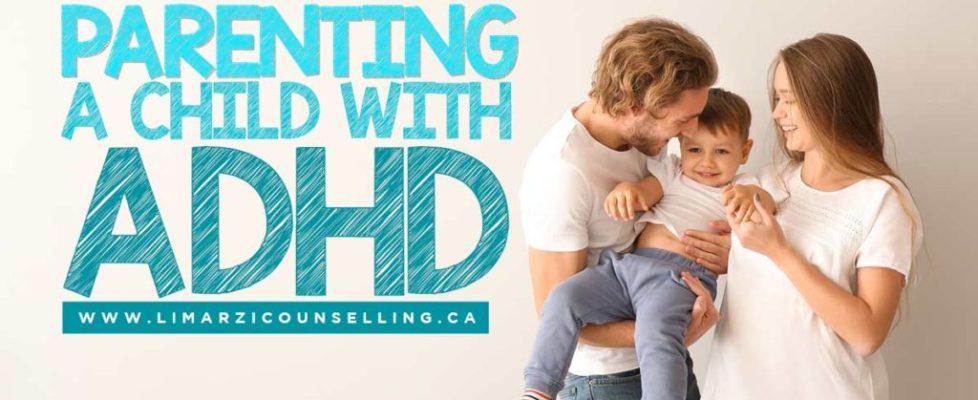Parenting a Child with ADHD
Parenting is never easy, and raising a child with ADHD can be have particular challenges. The good news is that there are strategies you can use to make your parenting skills stronger and more effective for the child.
Remember, ADHD is as frustrating for a child as it is for their guardians. They aren’t willfully acting out when they are disruptive. They want to do their chores, clean their rooms, or sit still; they simply have difficulty knowing how to do it. Keeping that in mind will make it more likely to be patient and supportive, even during difficult moments.
What is ADHD?
Understanding the disorder is key to effectively parenting a child who experiences ADHD. Attention-deficit hyperactivity disorder is relatively common among children. Children with ADHD usually have problems with executive function — organizing and planning, focus, regulating emotions, and self-monitoring (paying attention to what they are doing). For young children, a parent may have to guide with these executive functions until they can learn those skills.
If you notice symptoms of ADHD in your child, consult a doctor. Children are diagnosed with ADHD when certain behaviours occur more frequently and severely than in other children of the same age. Addressing your child’s problems early and consistently will help them succeed as they grow.
Strategies
Children with ADHD benefit from different parenting strategies. Their brains work differently, and often requires some adjustments among other family members. Care for your child more effectively by employing some proven techniques. Use these approaches to help your child on a daily basis.
Stay Calm
Always strive to keep a cool head. You will get frustrated at times, but arguing benefits no one. If you lose control, your child might follow suit. Keep the interaction productive, connect with your child and find a solution together.
Instead of becoming combative, say something like, “I understand you don’t find this fun,” and follow up with positive expectations and a loving touch on the shoulder. Empathize with your child; challenges are difficult for them, too. In your spare time, try some activities that help you stay calm (e.g. yoga, exercise, or reading). In the moment, take a deep breath and count to ten before responding to angry or challenging behaviour.
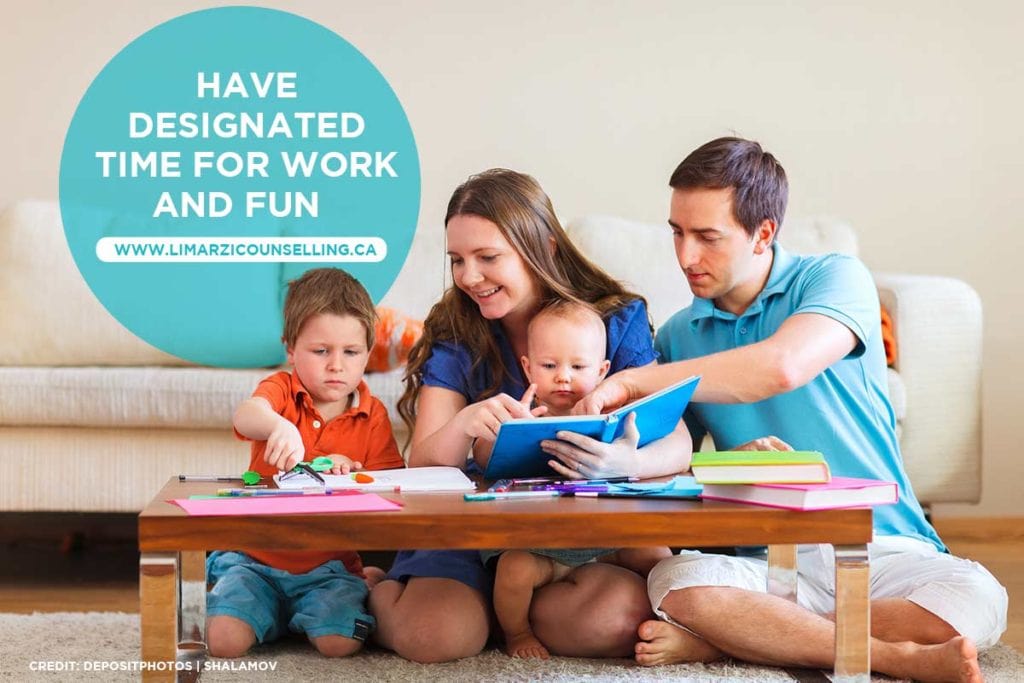
Structure
Structure helps kids with ADHD understand what is expected of them and how to behave. They need clearly defined routines for their daily lives. Use schedules and calendars to help keep your child’s life organized (older kids can also use clocks and timers). Structure helps reduce disorganization and distractions, making it easier for your child to focus on tasks.
Define specific times for routines. Include periods for getting ready for school, doing homework, free/play time, and going to bed. Have your child take part in creating the structure. For example, organize tasks into a list for them to check off as they finish each task. Include privileges to be earned, and make it fun. Allow some room for flexibility so they can express creativity and (reasonably) push the boundaries, when appropriate.
Keep Expectations Clear
Children with ADHD do best when expectations are made clear. Make lists of goals and rules for behaviour to help your child understand what is required. Be consistent; ambiguity in the application of rules creates confusion. When a reward is promised or consequences are required, always follow through.
Encourage Thinking out Loud
Impulse control can be a common symptom of ADHD. Your child may do things or blurt out something without thinking. Encourage them to slow down and say what they’re thinking. This can help them learn to consider the results of words and actions. From there, they can decide whether to follow through or not. This can also help you and other authority figures understand your child’s thought processes. Listen, and learn how their mind works in greater detail.
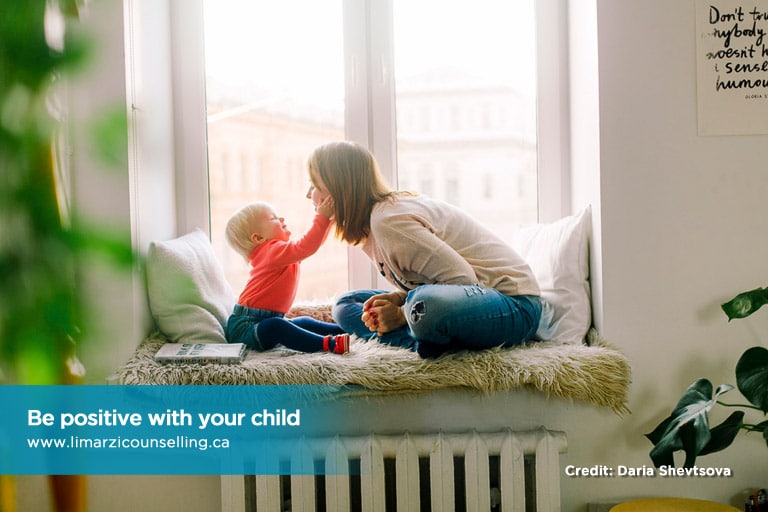
Use Positive Reinforcement
“The carrot” is almost always more effective than “the stick.” Positive reinforcement (e.g. hugs, or quality time with you) gets better results than punishment. Avoid negative language and behaviours. Methods (like raising your voice) are often ineffective. Children with ADHD sometimes struggle with self-regulating emotions. Children rely on your feedback to know what to do. If you are angry, they may try to match your emotional intensity.
Recognize when your child does something well. Offer special privileges like a special outing with you as an incentive for good behaviour. If you must introduce consequences for negative behaviour, ensure that the response is immediate, predictable, and consistent. Make any “punishment” appropriate to their age and in accordance with the severity (or mildness) of the behaviour.
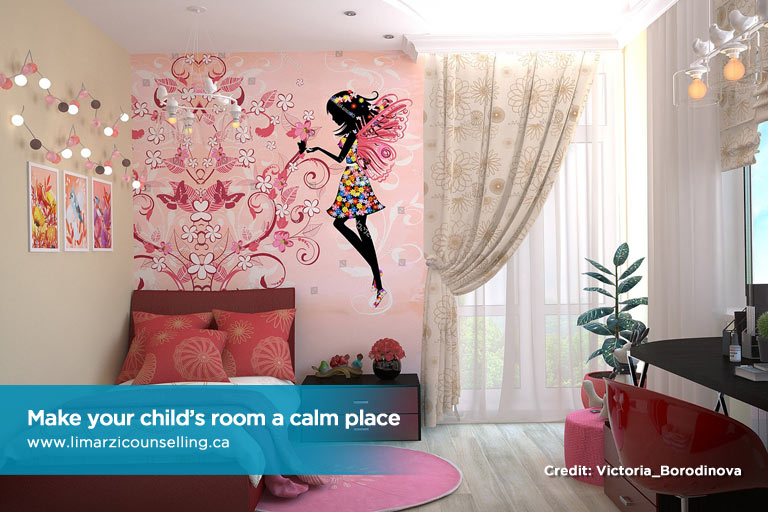
Create a soothing atmosphere
A child’s bedroom should be a place for them to relax and unwind, and even more so for a child with attention deficit. Make their room a calm and serene place. Limit use of electronics (e.g. TV, laptops, or video games) in the bedroom. These devices can impede proper sleep, which your child needs to regulate energy levels. Avoid distractions like too many posters or toys. Consider painting walls in relaxing colours. Do not include a desk, at least until the child is older. Desks can get messy, which may cause anxiety.
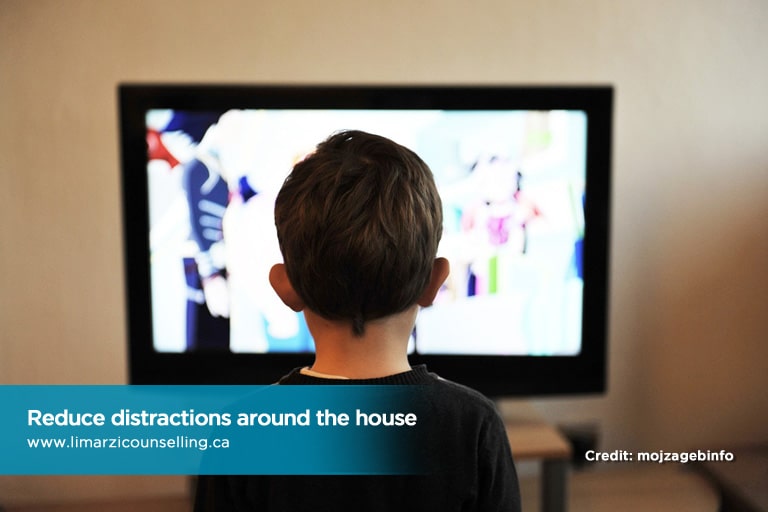
Avoid distractions
Children with ADHD welcome easily-accessible distractions, so give them an environment that can help keep them focused. Create a schoolwork space free from distractions. Organize homework and chores to keep kids from being overwhelmed with tasks.
Set a certain amount of time per task to guide them (some kids may find a timer helpful). Schedule regular breaks for longer tasks (say 10-minute breaks for each hour of study). For larger projects, create an action plan and break the work into smaller responsibilities.
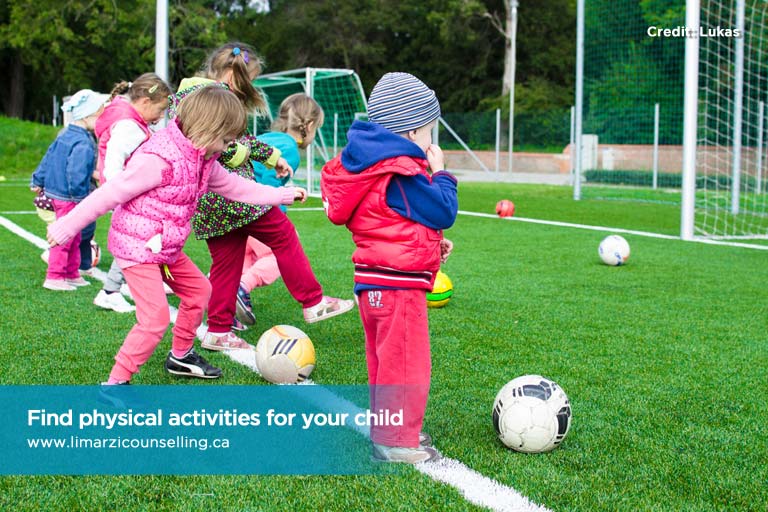
Encourage exercise
Kids with ADHD often have lots of energy. Give them plenty of activities and exercise. Exercise is a great way to build focus and improve concentration, and it can give your child a productive outlet for their energies and passions. Find something your kids like doing (e.g. swimming, jogging, martial arts) and let them get out as much as is possible. Take an active part; play them whenever possible. Family activities like hiking can help you to bond.
Be a Team
Think of your family as a team. Find ways to spend time with your child and understand each other better. This will help you to find more effective ways to communicate. Coordinate your efforts with other adults who have interaction with your child; ensure you’re all on the same page. (This includes relatives, babysitters, teachers, and therapists.)
It’s vital that everyone who cares for and teaches a child has the same understanding regarding goals and treatment. Coordination allows you to share important information so everyone can provide support and help provide a consistent approach in case of any behaviour issues.
Every child is different, so try different strategies to find what works for you and for them. Reach out to trained therapists for advice on parenting skills and help your child flourish.
For child counselling services in Windsor, give Wendy Limarzi’s Depression & Relationship Counselling Services a call. In addition to depression, anger management, and couples counselling, I also provide guidance for children and parents. Confidentiality is guaranteed. You can reach me at (519) 253-1519 or send a message.

